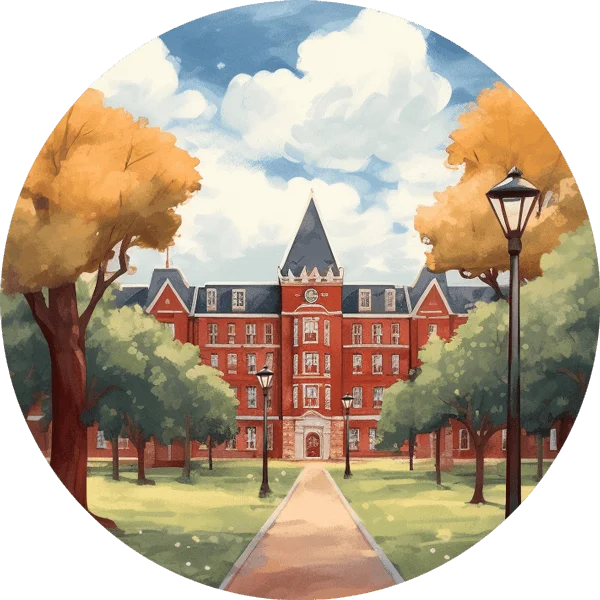& Universities

Best journalism schools are important for students who want to learn how to become successful journalists. These schools teach students important skills, knowledge, and experience that they need to succeed in the competitive field of journalism.
When students attend these schools, they get high-quality education and training that prepares them for their future careers in different media industries. The best journalism schools usually have strong connections with professional newsrooms. This is important because students get to network with professionals in the industry and gain real-world experience.
This exposure is really important for students who want to be respected professionals in their field. When you are looking for the best journalism schools, it’s important to read both featured reviews and average reviews from current and former students.
Featured reviews can tell you about the school’s strengths, while average reviews can give you insight into any weaknesses or areas for improvement.
Choosing the right journalism school can make a big difference in a student’s career path. It’s very important to do your research before making a decision. You should consider factors like where the school is located, what programs they offer, the expertise of the faculty, the success stories of the alumni, and what internship opportunities are available.
Some of the top journalism schools in the United States include Columbia University Graduate School of Journalism, Northwestern University Medill School of Journalism, University of California Berkeley Graduate School of Journalism, New York University Arthur L. Carter Journalism Institute, and University of Southern California Annenberg School for Communication and Journalism.
Best Journalism Schools
Northwestern University’s Medill School of Journalism, Media, Integrated Marketing Communications
Northwestern University’s Medill School of Journalism offers a highly esteemed, ACEJMC-accredited program that emphasizes experiential learning and innovation. Students can pursue undergraduate or graduate degrees, with program durations ranging from four years for a bachelor’s degree to one year for the Master’s program. Key features include hands-on reporting opportunities, cutting-edge media labs, and specialized tracks such as Digital Storytelling, Sports Media, and Media Innovation and Entrepreneurship. The program boasts an impressive faculty of seasoned journalists and industry professionals, as well as robust partnerships with major media outlets for internships and collaborative projects.
The estimated annual tuition for undergraduate students is approximately $63,000, while graduate programs cost about $76,000 per year. Financial aid and scholarship opportunities are available to eligible students.
Medill stands out for its focus on preparing students for the evolving media landscape. Its alumni network spans the globe, providing students with unparalleled mentorship and job placement opportunities. The school’s emphasis on cross-platform storytelling ensures graduates are well-versed in traditional and emerging media technologies. Additionally, Medill’s immersive residencies allow students to gain real-world experience in major media markets, such as Washington, D.C., San Francisco, or even abroad.
Columbia University’s Graduate School of Journalism
Columbia University’s Graduate School of Journalism is ACEJMC-accredited and widely regarded as one of the top journalism programs in the world. The program duration for a Master of Science (M.S.) is 10 months, while the Master of Arts (M.A.) spans nine months. An intensive dual M.S.-M.B.A. program, completed in collaboration with Columbia Business School, takes two years. Key features include rigorous training in investigative reporting, multimedia storytelling, and data journalism. Students benefit from small class sizes, a world-class faculty of Pulitzer Prize-winning journalists, and access to Columbia’s prestigious Tow Center for Digital Journalism.
The estimated cost of tuition for the M.S. program is $75,572, with additional fees and living expenses bringing the total to approximately $121,000 for the academic year. Financial aid, scholarships, and work-study options are available to help offset costs.
Columbia Journalism School is renowned for its global reach, robust alumni network, and focus on cutting-edge journalism practices. Students have access to resources like the Stabile Center for Investigative Journalism and the Brown Institute for Media Innovation. The program’s proximity to major media hubs in New York City provides unmatched opportunities for networking, internships, and professional development. Moreover, its legacy of producing Pulitzer Prize winners underscores its commitment to journalistic excellence.
University of Missouri’s Missouri School of Journalism
The Missouri School of Journalism, accredited by ACEJMC, is one of the oldest and most prestigious journalism schools in the United States. Offering both undergraduate and graduate programs, the school provides students with a comprehensive education in reporting, multimedia, public relations, advertising, and digital media. The undergraduate program typically takes four years to complete, while the graduate program can be finished in two years. Key features of the program include hands-on learning through the school’s various student-run media outlets, such as the Columbia Missourian and KBIA Radio. Students also benefit from opportunities to engage in internships and professional collaborations through the school’s global network of media partners.
The estimated annual tuition for out-of-state undergraduate students is approximately $31,000, while in-state students pay about $11,000. Graduate tuition for out-of-state students is around $17,000, with in-state students paying approximately $12,000 annually. Additional costs for fees and living expenses bring the total estimated cost to $22,000-$37,000 per year for undergraduates and $28,000 for graduate students. Financial aid and scholarships are available.
The Missouri School of Journalism is renowned for its focus on professional training and its state-of-the-art facilities, including the Donald W. Reynolds Journalism Institute. Students can also gain invaluable real-world experience through the school’s immersive newsroom environment and an emphasis on storytelling in diverse formats. The school’s deep ties to the media industry, along with its innovative approach to teaching, make it a top choice for aspiring journalists.
University of California, Berkeley’s Graduate School of Journalism
UC Berkeley’s Graduate School of Journalism offers a highly respected, ACEJMC-accredited Master of Journalism (M.J.) program, which typically takes two years to complete. The program is renowned for its interdisciplinary approach, combining rigorous journalistic training with academic study in social sciences, law, and technology. Key features include hands-on reporting through the school’s various media platforms, such as The Berkeley Journalism Review and The Daily Californian, as well as an emphasis on data journalism, multimedia, and investigative reporting. Students benefit from close mentorship by a world-class faculty and the unique opportunity to engage in global fieldwork and partnerships with leading media organizations.
The estimated annual tuition for California residents is approximately $17,500, while out-of-state students pay around $32,000. With additional fees and living expenses, the total annual cost is approximately $39,000-$56,000. Financial aid, including scholarships and fellowships, is available to help offset the cost.
UC Berkeley’s Graduate School of Journalism stands out for its commitment to social impact and innovative journalism. The school is located in the heart of Silicon Valley, providing students with unparalleled access to tech industry leaders, media startups, and digital innovation. The program’s emphasis on investigative reporting and social justice issues makes it particularly attractive to students passionate about creating meaningful change through journalism. Additionally, Berkeley’s extensive alumni network and its location in a major media hub offer valuable career opportunities in the journalism field.
Boston University’s College of Communication
Boston University’s College of Communication (COM) offers a highly regarded journalism program that prepares students for success in both traditional and digital media environments. The undergraduate and graduate programs are accredited by ACEJMC and provide a well-rounded education in reporting, multimedia production, and communication strategy. Undergraduate students can complete their degree in four years, while graduate students typically finish their Master of Science in Journalism (M.S.) in one to two years. Key features include hands-on experience at the BU News Service and the Daily Free Press, BU’s student-run newspaper. The program also offers specialized tracks in digital media, broadcast journalism, and public relations, along with internship opportunities in Boston’s vibrant media landscape.
The estimated annual tuition for undergraduate students is approximately $63,000, while graduate students pay around $55,000 per year. Additional fees and living expenses may bring the total cost to $85,000-$100,000 for undergraduates and $70,000-$80,000 for graduate students. Financial aid, scholarships, and work-study opportunities are available for eligible students.
BU’s College of Communication stands out for its dynamic curriculum, which emphasizes both the technical and ethical aspects of journalism. The program’s location in Boston offers students access to numerous media outlets, tech companies, and nonprofit organizations. The college’s faculty includes prominent journalists, and its alumni network spans the globe, providing graduates with a wealth of professional connections. Additionally, BU offers a unique global journalism program that includes opportunities for international study.
About Ranking:
At CollegeRanker, our ranking methodology is grounded in a comprehensive analysis of key factors that contribute to the quality and accessibility of journalism programs. We evaluate each program based on criteria such as cost, ensuring that the educational investment is aligned with the program’s overall value. Accreditation is another crucial factor, as it guarantees that the program meets industry standards and provides students with a reputable degree.
We also consider the flexibility of the program, with a particular focus on online options, which cater to students who require a balance between education and other life commitments. Faculty expertise is another central aspect, as the qualifications and professional experience of the instructors play a vital role in delivering high-quality, relevant content. Additionally, we assess the availability of internships, job placements, and industry connections, which provide real-world experience and improve graduates’ employability.
To ensure our rankings are accurate and up-to-date, we continuously track changes in curriculum offerings, student satisfaction, and overall program outcomes. This holistic approach provides prospective students with a reliable overview of the best journalism schools, allowing them to make informed decisions about their academic futures.
Conclusion:
Choosing the right journalism program is essential for achieving success in the competitive media landscape. The ideal program varies from student to student, depending on career goals, financial considerations, and personal preferences. For aspiring journalists, factors such as program reputation, faculty expertise, and hands-on learning opportunities can significantly impact future career prospects.
With a solid understanding of the most relevant programs and their unique strengths, students are empowered to choose a path that aligns with their aspirations. Whether you are looking for a traditional campus experience, an online program with flexible options, or a focus on cutting-edge media technologies, there is a journalism program to fit your needs. We encourage you to explore these options further, visit program websites, and reach out to admissions teams for additional information. Taking the time to research and understand your choices will help ensure that you make an informed decision that sets you up for success in the ever-evolving field of journalism.


